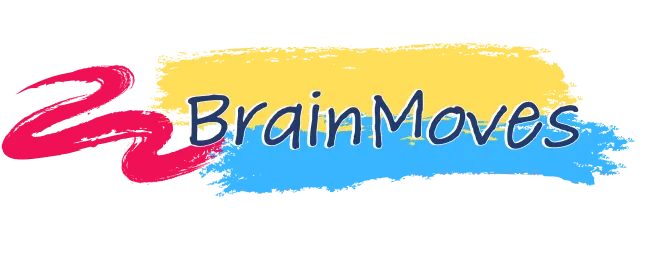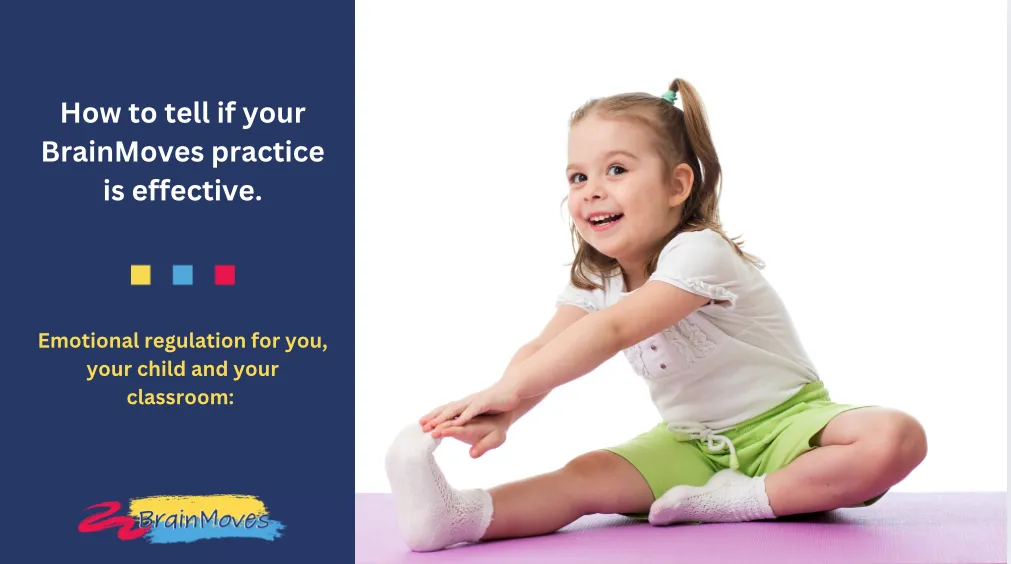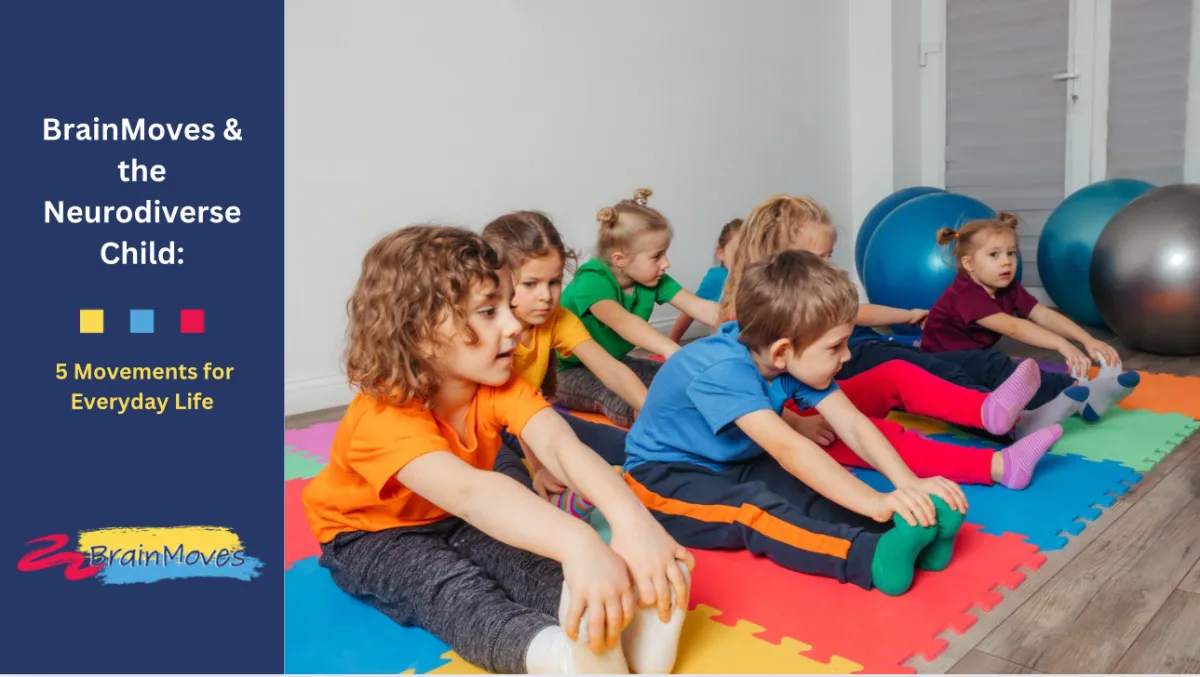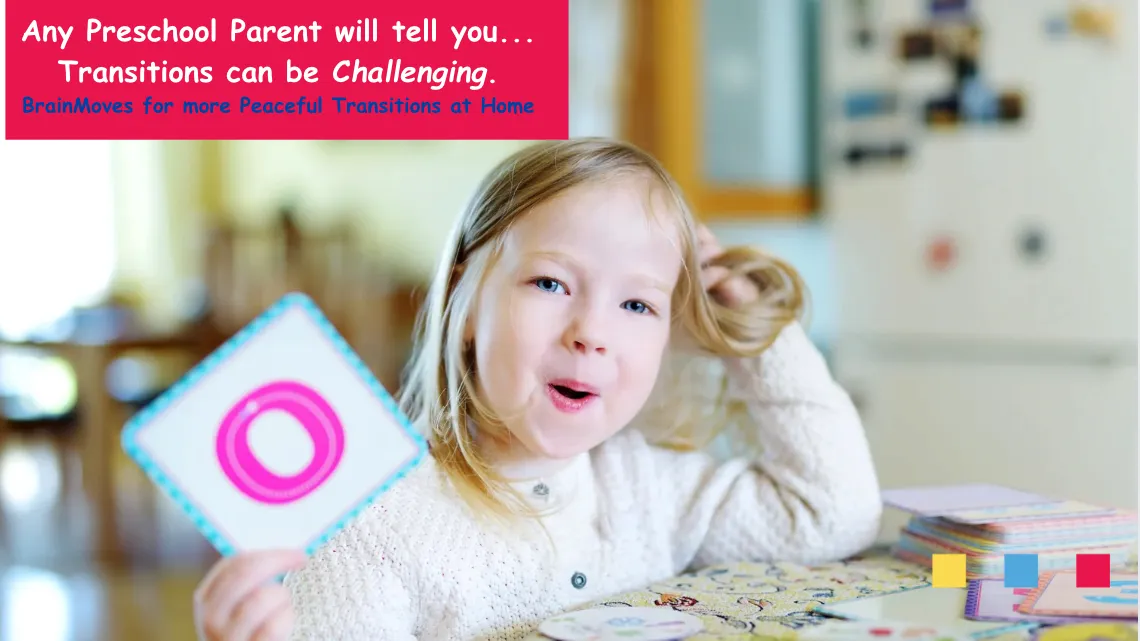Emotional regulation for you, your child and your classroom: How to tell if your BrainMoves practice is effective
Today, we will take a dive into emotional regulation and how to determine if someone is emotionally regulated or simply shut down. We will define what a regulated individual looks like and discuss how to measure somatic regulation before and after doing a BrainMoves movement. Let’s start by defining what emotional regulation looks like. Is a regulated individual someone who doesn't feel emotions strongly? Can a regulated individual have outbursts of excitement or strong feelings? To be emotionally regulated is not to be devoid of feeling, but rather to experience a balanced range of emotions.
BrainMoves and the Neurodiverse Child: 5 Movements for Everyday Life
In our periodic series about how to use BrainMoves in real life, I’d like to share an example. Over the next few months, I’ve decided to give examples of how I think about using BrainMoves to help different types of students and learners. As you may recall from earlier classes and posts, I work with a variety of different populations. With my elementary-aged students, I often see individuals with unidentified learning differences and/or behavioral challenges. Often, they’re in my afterschool program because they have concerned or engaged parents who want to make sure that they’re providing the best for their child, no matter how their brains are wired. They understand that enrichment programs like STEM, afterschool cooking, or physical activity will help their child integrate what they have learned and be calmer. This is true because it’s based upon the same principle that BrainMoves movements are based upon: Movement and engagement are what our bodies are designed to do.
Ask Diane, My Boisterous Child
I am reaching out because I am concerned about my preschooler, Luke, who is displaying some challenging behaviors that are becoming increasingly difficult for us to manage. Luke is often restless and hyperactive, frequently running around and bumping into other children and even walls. It seems like he doesn’t fully understand how to play nicely with others, which often leads to tears or even accidentally injuring other children during playtime. He isn’t even unkind; he seems to just be loud, boisterous, and rough and tumble all day until he falls asleep like a log, exhausted at night.
BrainMoves for more Peaceful Transitions at Home
Last week, we talked about how transitions between activities in a preschool classroom can be a challenge. Well, we know the same thing can happen at home. Preschool brains and bodies can respond intensely to stimuli, interruptions of games, or when asked to participate in necessary quiet times for naps. They can also struggle with pauses in motion, such as waiting for a snack, meal, or in line at the grocery store with a parent. Today, we are going to match some specific BrainMoves movements to specific at-home transitions to make your family’s time together more calm and fun.





